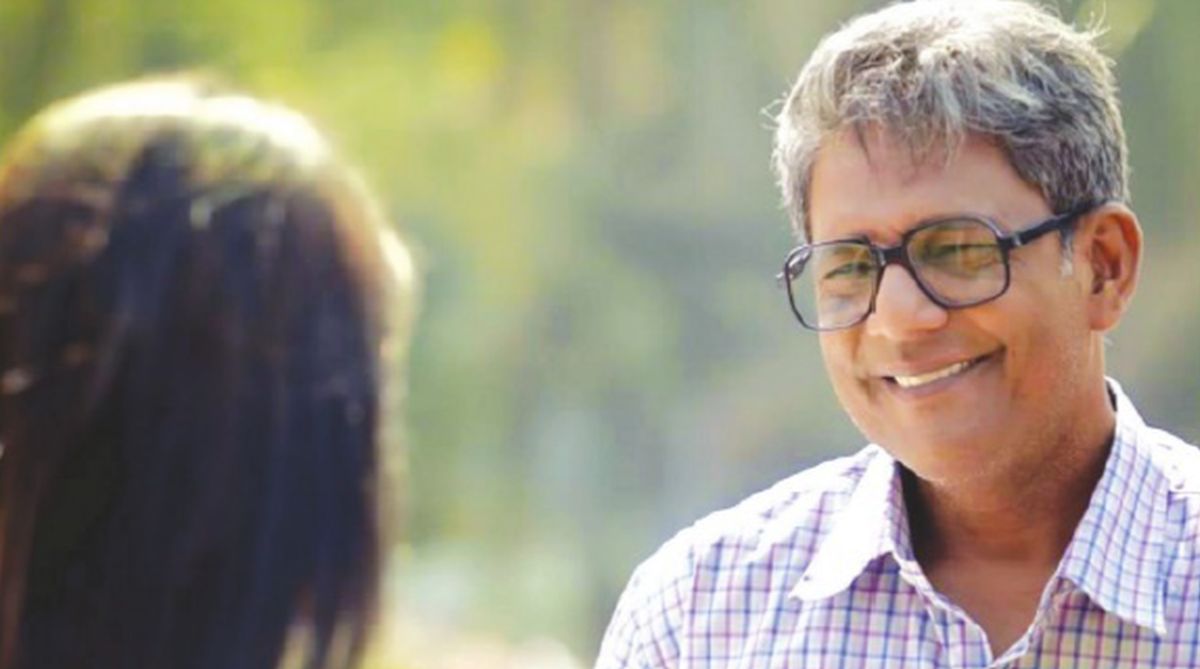Human emotions are often liable to move in directions that are neither predictable nor plausible and can cut across social and age barriers. This is also an area that has potentially interesting results — which is why a filmmaker with a flair for the off-beat can present Ahare Mon.
What may not be quite so plausible is the depiction of the environment in which the emotions are played out. It is one thing to stitch together a package of emotions in a manner in which they can please at an ordinary level. It is something else to construct a convincing collage to suggest that love can blossom in the most unexpected places. This is the contradiction that distinguishes a film like this one, which can reach out to a cross-section of theatre audiences, from one that can stand up to serious scrutiny.
Advertisement
The director, Pratim D Gupta, has revealed a flair for exploring emotional conflicts that challenge confirmed notions of social conduct. This is promising enough but for the exaggeration that arises from a desperate effort to be different. It dilutes the cinematic merits that are evident in the latest effort as well.
The most striking revelation is a story telling skill supported by excellent performances. But while the viewer is drawn into the heart-warming vignettes of life around an old-age home or, more surprisingly, an immigration counter at the airport, a rational approach would find it hard to put these in a plausible social context.
That is the licence that one must allow if one is to appreciate the human touches that lift this film to a reasonable level of professional competence. The major discovery is Adil Hussain as the lonely, middle-aged bachelor with a gentle heart and an uncanny habit of running into women who also suffer from their own kind of loneliness.
The actor, who appears in his first Bengali film, speaks in measured tones that reflect the warmth of a lovable character. What robs the character of a lasting quality is the absurdity of the drama in the highsecurity zone of an airport — the backdrop for a tender relationship that develops between the immigration official and a frequent flyer.
It may not look embarrassing that he engages in casual conversation with customers and, in this case, the response from a glamorous young woman looks quite promising. But to what extent can this be taken to a logical conclusion even with the twist that is inflicted on the episode? The best that one can do is to fantasise about an improbable romance and enjoy the unexpected chemistry with the younger woman, played sensibly by Paoli Dam, without looking for honest statements.
Much the same weakness creeps into the story of two inmates of an oldage home who strike a relationship that is strong enough to prompt them to escape into an unnatural adventure that includes a night that they share in a hotel room. The moral questions are less important than the improbabilities.
But, again, what sustains the drama is the absorbing treatment of the characters played by Anjan Dutt and Mamata Shankar. The two have figured in romantic situations in the past but this little story excels in its emotional nuances, restraint and human appeal. Particularly touching is the use of a Tagore song that is made to relate to the name of the character in both the story and a much-loved Satyajit Ray film.
This is one of the rare occasions when an idea has been borrowed with a remarkable degree of sensitivity and relevance. Sadly, the same cannot be said of the two other episodes that are meant to depict more shades of unnatural expression.
The two young dropouts who choose the path of crime as a bizarre form of escape from the mundaneness of their lives can only shock the sensibilities of a thinking audience as much as the crush that a terminally ill girl has on someone considered a superstar.
The sick girl is played by a newcomer, Chitrangada Chakraborty, who shows enormous promise. The spontaneous touch that she gives to her performance puts her well ahead of many in the current scenario who rely heavily on glossy excesses. Where the character is destined to perish is in the cliché of teenagers being gripped by the myth of life changing encounters with superstars. It takes away from an otherwise remarkable performance.
Ritwik Chakraborty and Parno Mitra are also talented performers crippled by the excesses inflicted on them. Some of the situations into which they are forced are clearly absurd. The film, in fact, draws heavily on contrived elements that finally remain loose and eventually fail to sustain the overall idea. It also has a sprawling cast that is largely wasted on dispensable cameos.
This is partly because the script demanded characters made to contribute, however marginally, to the disjointed portions. Some of them have the roots that don’t produce the desired results. Others are rooted in improbability but are partly redeemed by the performances.
Even with these drawbacks, this effort can claim the positives of polished treatment, the warmth of human experiences and some performances that deserve to be remembered. Eventually, it doesn’t go beyond its tender moments that make a loose package and don’t add up to a convincing statement











